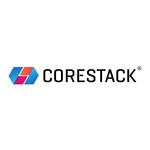The new, new thing needs old-fashioned management skills
Neobanks have inherently flexible technology stacks that enable them to respond quickly to novel market and customer requirements, but digital transformation is at least as much about changing skills and processes in a bank as it is about composable architectures, reports Ouida Taaffe, editor at The London Institute of Banking & Finance.

Swapping out payments technology or core banking at a large firm is “almost like heart surgery”
Incumbent banks still suffer from the reputation that they run monolithic legacy systems incapable of providing arresting fintech services. That’s despite the fact that most people in the UK bank with incumbents and, according to a YouGov survey, 81% of UK adults choose their bank based on the online experience it provides.
As a group, digital challengers have around 8% of the market for personal current accounts while the ‘big four’ share 64%, the FCA said in its January 2022 Strategic Review of Retail Banking Business Models.
What is true is that the incumbents were not originally set up to support the demands of fully digital banking, so they layer new services on top of old architecture. That brings cost and friction. Fintechs, on the other hand, can reach for the latest technology and only pay for what they use.
“Most fintech platforms today are built in a composable way, around microservices that connect with APIs to each other and other services that you can buy in,” says Jeremy Takle, Founder and CEO of Pennyworth, a personal finance app, and a long-time senior executive at Barclays. One of the main advantages of that composability, he says, is that it “allows your teams to work on different things at the same time and to continue to develop, or buy in and integrate, new services”.
Incumbent banks are also concerned about being able to quickly offer new products. “Banks, more and more, are building microservices and new architecture, so it’s only a matter of time for the gaps to narrow,” says Prakash Pattni, Managing Director – Digital Transformation, IBM Cloud for Financial Services. “People are discovering that you don’t need to rip and replace.”
What stops the incumbents from going full steam ahead with a new technology stack is, Pattni says, that swapping out payments technology or core banking at a large firm “is almost like heart surgery…it’s critical that it works”. Neobanks, on the other hand, can not only start from zero, they are not running systems intrinsic to the economy.
Technology is only part of the story
But if neobanks do have more responsive technology and can spin up new applications more quickly and at a lower cost, why haven’t they made more of a dent in the market? What makes for a good challenger?
“The technology itself isn’t everything, it’s an enabler,” says Takle. “What makes the difference is the way you organise around that composability, and how it allows you to organise. It means independent teams being able to operate on different parts of the system at the same time. They can grow in different directions, rather than being tied to a big change control system.”
That does, of course, beg the question of how a neobank, particularly one that aims to be innovative, ensures that staff are working towards the same overall goal.
“There has to be a very clear purpose in terms of why and what you want to build,” says Takle. “Then, the teams within that have both the skills and the latitude to build solutions that are solving different parts of a customer’s problem. The great thing then is you essentially keep that entrepreneurial spirit as you scale because each team has all of the functions and the capabilities they need, plus the technical architecture, to build and evolve and add to the business.”
But is it really cheaper to run a fintech – particularly if there is a lot of latitude for developers to choose the problems they want to solve?
“Cloud-based services can be cheaper,” says Pattni. “But mainframes can also be much more efficient in cost and power consumption than some cloud technologies. It really depends on the workload, and it really requires good hygiene. For example, if developers spin stuff up that they just leave running over the weekend, or apps are running all the time at a high rate, that can be more expensive on the cloud than on-premises.”
Pattni adds that today, IBM’s latest mainframes offer quantum-safe capabilities that the current servers in the cloud do not, which may lead to a reconsideration of tech stacks – especially as containerised microservices can be run on mainframes.
Pattni also points out that neobanks will increasingly be subject to the same level of regulatory scrutiny as incumbents, which will add cost. In a 2022 Strategy Report, the FCA noted that it is: “being tougher on firms who want authorisation to operate in the UK, using data more systematically to ask the firms we supervise more rigorous questions and using our enforcement and intervention powers more actively”.
Banks are about managing risk. Does that mean that firms do better to shy away from creativity and bolt down their processes?
“I think it misunderstands where risk arises inside banks,” says Takle. “The idea that you’ve got to lock down your business model and only do one thing super efficiently doesn’t really create a more riskless business because you’re less able to adapt to changing circumstances.”
What needs to happen, Takle says, is that risk functions are embedded in the teams that deal with issues directly rather than sitting and reviewing problems that have already happened. “Risk management is best when it’s an active process of identifying risk and mitigating risk as you’re improving or building new things. You don’t want to have to go back and remediate old problems.”
About the London Institute of Banking & Finance (LIBF)
The London Institute of Banking & Finance (LIBF) has been at the heart of finance and banking since 1879, creating connections and building partnerships between people and business that make banking and finance more accessible and understood, and enhance social inclusion through better financial capability.
LIBF’s focus has always been lifelong learning – equipping individuals with the knowledge, skills and qualifications to achieve success throughout their career and in life.










































